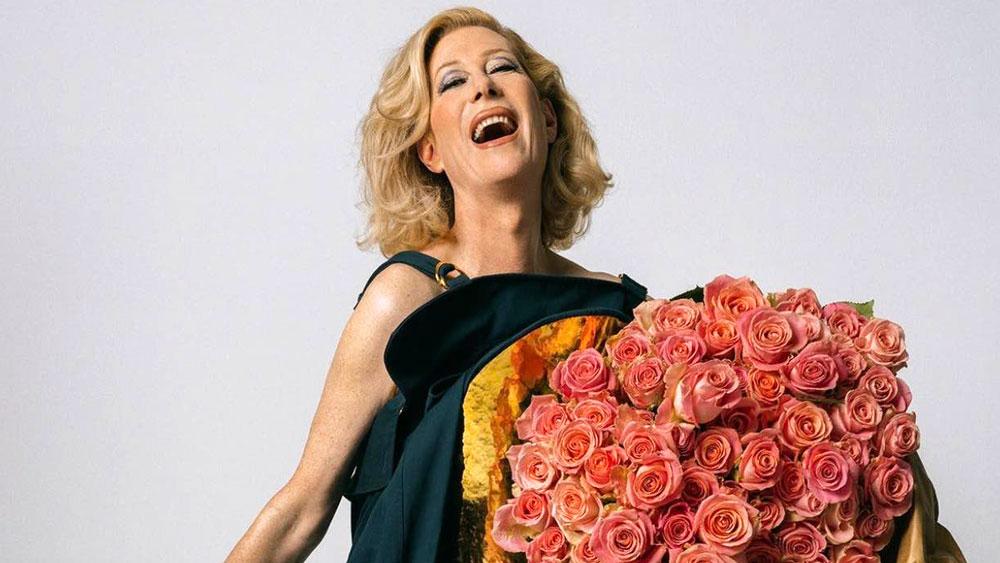July 17, 2013
Assassins
Michael Cox READ TIME: 5 MIN.
The F.U.D.G.E. Theatre Company gave themselves an enormous challenge for the final production of their season: they decided to attempt Stephen Sondheim's "Assassins." Not only does this show requires razor sharp vocal and acting talent, it's also Sondheim. And Sondheim fans are hardcore. We're ruthless.
Fans scrutinize each performance against the original Off-Broadway recording (1991), the London premiere recording (1992), and the time we saw the original Broadway production, thirteen years later -- which, as it happens, was also the first time we got laid, due to the fact that we were all so excited about being surrounded by a room full of Sondheim fans for 100 uninterrupted minutes.
Non-Sondheim fans seem to find the show unfocused, with a "piecemeal book" and lacking a strong dramatic narrative. The original production at Playwright's Horizons received a chilly critical reception. Frank Rich of the New York Times said, "'Assassins' will have to fire with sharper aim and fewer blanks if it is to shoot to kill."
The show is a concept musical, like "Company," but whereas "Company" has a cluster of songs and scenes surrounding the idea of marriage, the main idea of "Assassins" is a bit darker. The majority of the characters in this play are people who have attempted (and sometimes succeeded) to kill the President of the United States.
The show requires amazing acting and powerful singing. Each of these assassins attempts to seduce the audience into their unreliable narration of a piece of history, and the only way that this musical succeeds is if the actors can convince the audience to go on a disturbing journey into some messed-up minds.
The device the production uses is to set the stage as a carnival shooting gallery. A Proprietor (Kelton Washington) implicates the audience throughout the show into taking their shot and receiving a prize. It is within the first song that the fundamental flaw with this production occurs. The Proprietor cannot be either heard or understood. With this, the whole premise of the play is lost.
In "Finishing the Hat" and "Look I Made a Hat," the collected lyrics of the author, Sondheim tells us why he never uses slant rhyme. The primary purpose of rhyming in drama is so the audience will hear and understand the lyrics. The songwriter criticizes his peers who use sloppy rhyme schemes. This is how important the lyrics are in Sondheim's plays. The producers chose not to mic their singers -- which is appropriate because it is a small space -- but it must become a primary concern for this production that every actor is heard and understood from every part of the house.
There were more technical problems (actors missing their marks and standing outside of the light, actors faces completely blocked by lighting instruments when they stand on the platform), but the sound was the most off-putting.
Nor was this problem confined to some of the actors being all but inaudible. For instance, one scene builds to the breaking of a glass bottle:
"Go ahead. Break the bottle."
"No, I can't." Etc.
When the bottle is eventually broken we must hear glass break. Instead we hear an anti-climatic thud as the bottle hits a pillow backstage. Similarly, the sound of gunfire, which is vital punctuation throughout the piece, was weak and inconsistent.
When the show was produced in London's West End, a song was added, "Something Just Broke." EDGE critic Adam Hetrick said of this song, "Let's face it, in any... assassination, the act of violence isn't really about the targeted individual, it's about the collective population of the country it affects. If 'Assassins' has a heart, it is beating in 'Something Just Broke.' "
But this song didn't really impress me. Unlike almost every other show, this show is not about the victims. It's about the assassins. The song takes us away from the essential narrative: accepting how close we all are to insanity.
That being said, one of the singers of "Something Just Broke," and an actress who played multiple roles throughout this production, Cat Claus, stood out with a powerful, rich voice and exuberance on stage.
Few of the performances were truly menacing, but Ben Sharton's performance was remarkable because he doesn't play a psychotic killer. He is simply a man who is desperately in love. The man: John Hinckley Jr., the individual whose obsession for Jody Foster led him to attempt the assassination of Ronald Regan.
Sharton actually makes us believe that he is capable of obsessive love (or at very least exposing his genitals on the subway). His role isn't very big, but he has the responsibility of singing one of the most beautiful and f-up love ballads every written, "Unworthy of Your Love." In this alienating duet, John Hinckley and "Squeaky" Fromme testify their undying love to Jody Foster and Charles Manson, respectively.
A less generous actress than Catherine Lee Christie as Sara Jane Moore would have stolen the show. She clearly has the talent to do so. But her charisma never prevents her from being real and in the moment. We can believe this woman has done a lot of acid. She's playing a disciple of Charles Mason after all.
As I said earlier, this show went through nearly 15 years of development. It was scheduled to open on Broadway in 2001, but the events of that year led the creators to rethink that idea. When it finally did open on Broadway in 2004, two roles were combined, the Balladeer and Lee Harvey Oswald, and it was while I watched this production by the F.U.D.G.E. Theatre Company that I realized the importance of that move.
Throughout the first part of the play the Balladeer tells the story of each of the featured assassins and comments very critically on their behavior.
"Angry men don't write the rule and guns don't right the wrongs."
But the Balladeer has a love/hate relationship with these assassins. This conflict builds to a pivotal scene where John Wilkes Booth convinces the Balladeer as Lee Harvey Oswald to shoot John F. Kennedy.
Each assassin's story has led to this moment. Lee Harvey Oswald takes the gun, the twisted American dreams and the tradition of violence passed on from his ancestors, his "family" of fellow killers and fellow dreamers.
Jared Walsh in this role could be playing Pippin instead. His voice is pure and clear as a bell. He's bright and hopeful, an all-American, the person we wish ourselves to be. Still, there's something just a little menacing in his posture. Have we misread him? Is he wrong? Or are we wrong?
After all, this is our manifest destiny. "If you can't do what you want to, you do the things you can. You've got to keep on trying, like they say. You got to keep on trying every day. Until you get a prize.
"You can always get a prize..."
Just pull the trigger.






